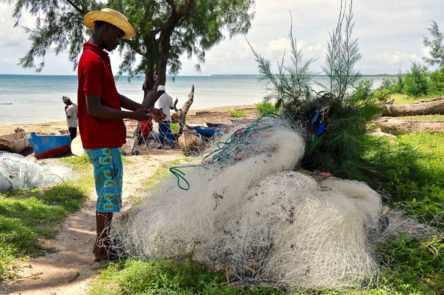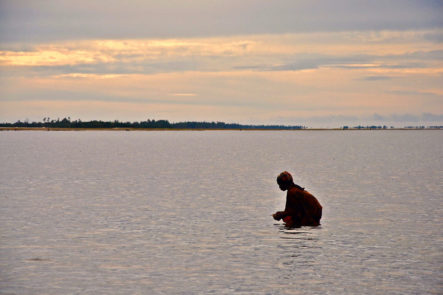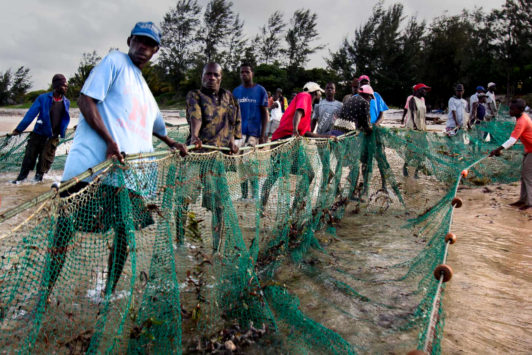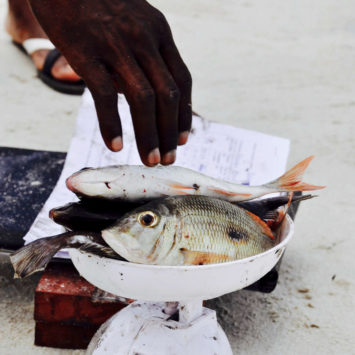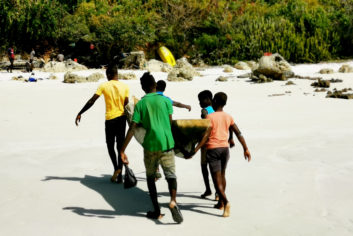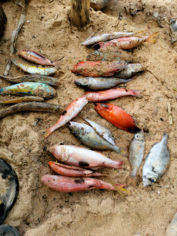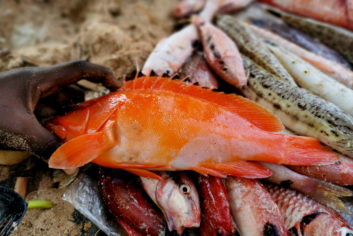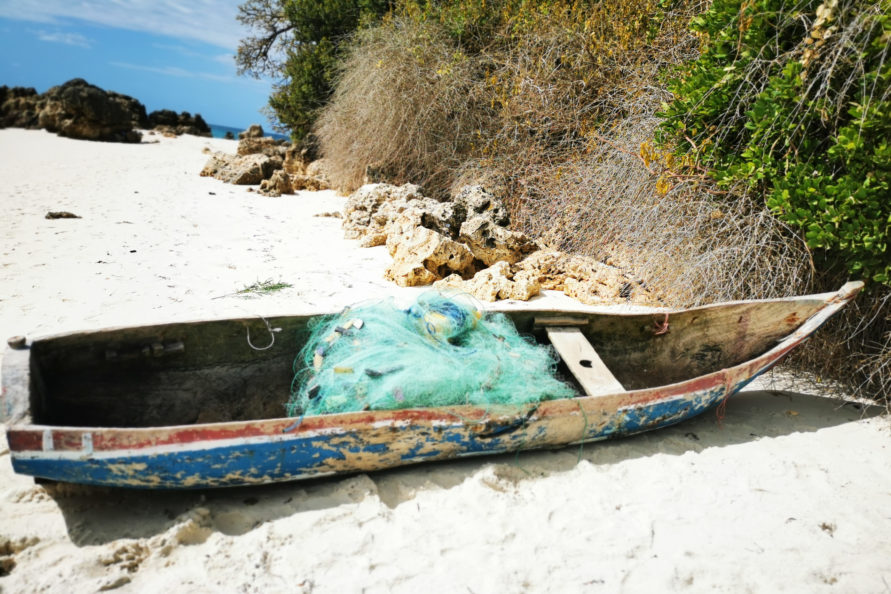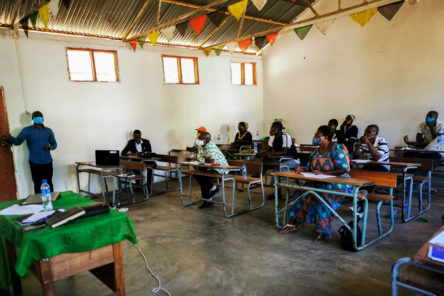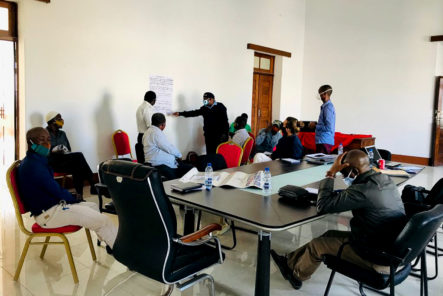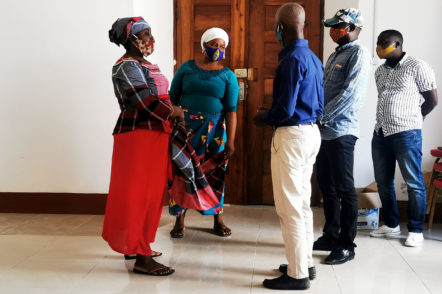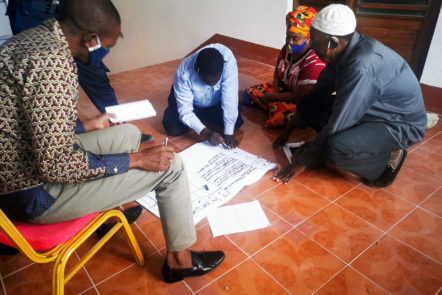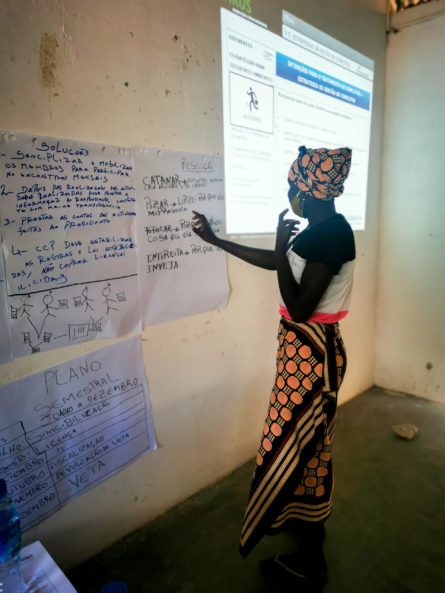Despite being bordered by six other southern African countries, Mozambique boasts 2300 kilometres of coastline, the longest stretch in east Africa. The people of Mozambique are highly dependent on the ocean, with around 60% of the population living in coastal areas. This large concentration of people on the coast, along with 40% of the total exports earnings coming from fisheries, puts a significant strain on the country’s coastal resources and marine environments.
Meanwhile, a lack of access to good health services, including reproductive health services, is driving poor maternal and child health and high fertility rates in the country, both of which limit the ability of women in particular to earn an income. Poverty is rife throughout Mozambique, and in the northern part of the country, escalating unrest is forcing already isolated communities to become even more disadvantaged.
Challenging contexts like this are not unfamiliar to our team at Blue Ventures; we work in places where the ocean is vital to local cultures and economies, but where myriad of other interconnected challenges stand in the way of advancing the rights and resilience of small-scale fishers, their families and their communities.
To combat this, we develop effective models for catalysing or enhancing local marine conservation, before collaborating with like-minded organisations to apply, adapt and scale this approach in new places. Our collaborative relationships with partners are centred on mutual exchange, as we seek to share experiences openly across different contexts and learn from each other.
Our story in Mozambique started back in 2016, when we began providing guidance to partners around both our fisheries and our health-environment approaches. So far, we’ve worked with ZSL’s Our Sea Our Life Project in Cabo Delgado province to support local management of fisheries. We have also worked with the Endangered Wildlife Trust in Bazaruto, the Peace Parks Foundation in the Maputo Special Reserve, and Solidariedade Moçambique in Nampula and Zambezia provinces to implement health-environment programmes.
More recently, we’ve formally registered as an NGO in Mozambique, which is allowing us to play a more active role in supporting local fisheries management initiatives. One of the first developments that has come out of our new NGO status has been expanding the team here, and on 1st April of this year, I joined as Blue Ventures’ new Fisheries Officer in Mozambique.
It is my job to provide technical assistance and support to partner organisations involved in community-based fisheries management. I joined the Blue Ventures team during a challenging time – my first day was the day the government declared a State of Emergency as a result of the COVID-19 pandemic. Not only did I have to settle into my new role and learn about my responsibilities entirely online, but I was also joining my new colleagues as they were adapting to the pandemic and working out how to support our partners remotely.
However in July, after three months of remote work, I finally got the opportunity to meet some of our partners in person. After travelling for five hours from Pemba to Ilha de Moçambique, I met with the team at Oikos (Cooperação e Desenvolvimento), an international NGO that has been working in Mozambique for over 30 years. Our collaboration with them is currently focused on a project in Nampula province, in the districts of Ilha de Moçambique and Mossuril, and is one of the first exciting partnerships we’ve set up since confirming our NGO status in the country.
The Nampula coast, where the project is based, has a wealth of natural resources, including fisheries, which offer great potential for local development. Together with Oikos, we work with communities to establish dynamic and locally appropriate fisheries management strategies and governance systems, that help rebuild fisheries in a way that bolsters the local economy whilst also safeguarding threatened marine biodiversity.
The purpose of my visit was to support Oikos in facilitating training on governance and conflict management. The participants included Concelho Comunitário de Pescas (CCP) members from the districts of Ilha de Moçambique and Mossuril, as well as district fisheries technicians. CCPs are legal institutions that have existed in coastal Mozambique for around 20 years and are essentially a community-led fishing council, in place to guide efforts to manage fisheries and natural marine resources in each village.
The training itself involved four CCPs – three from across Ilha de Moçambique and one from Mossuril – and started with a presentation of Oikos’ project based in Nampula. After the presentations, the CCP members took part in group work to identify the main problems with governance and conflict within their councils.
Participation within CCPs emerged as a prominent challenge; most weren’t holding a general assembly, which meant that there was no formal body to make decisions or to facilitate clear communication between members. From listening to the groups, I also learned that there was often a lack of clarity on the purpose of CCPs, what their activities were and what the responsibilities of the members should be. This often led to an imbalance of power, with some CCP members exploiting their position and leading irresponsibly and dishonestly.
The second part of the group exercise was to propose solutions for improving governance and conflict management. Each CCP decided to establish a general assembly to increase the number of members within their councils and to hold elections for selecting new participants. The general assembly would also be utilised to elect credible leaders and to establish an inclusive flow of information, combatting concerns with transparency. To improve accountability, the members also decided to prepare formal activity plans and reports, delegating responsibilities to individual CCP members to boost motivation and participation. They also decided to define clear CCP policies and laws, and planned to clearly communicate these within their communities so that all members are aware that they would be held accountable in cases of law violations.
To complement the group work, the participants also took part in some role play activities, choosing a common source of conflict in their community and acting it out in order to practice coming up with solutions in real time. For example, the participants from Ilha de Moçambique chose the overlapping of fishing nets at fishery sites, whilst the representatives from Mossuril opted for mosquito net fishing. These real-life examples were used throughout the training to help the participants to develop their own approaches to conflict management, appropriate to their individual contexts and experiences.
I was pleased to see that the participants were motivated to start the process of developing more effective and collaborative ways to manage their CCPs. Meanwhile, Oikos are planning to replicate the training in the neighbouring villages of Matibane and Lunga.
I enjoyed my first trip to Ilha de Moçambique and I am looking forward to developing collaborative relationships with our partners like Oikos in the future, pushing forward our mission in Mozambique and building the resilience of communities in this beautiful coastal country.
Read more blogs about our partnerships in Mozambique


